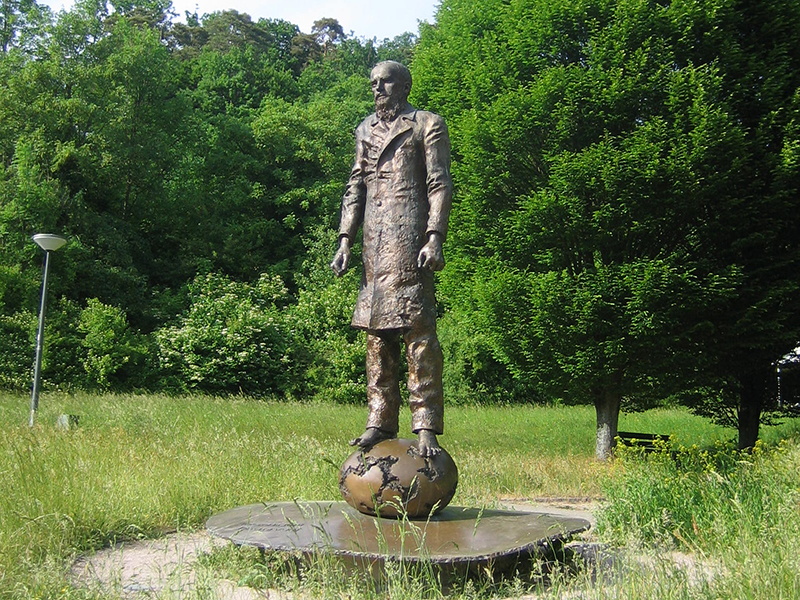What you need to know tourists about Cyprus
Cyprus is the third area of \u200b\u200bthe area and the third population island in the Mediterranean. Geographically refers to Asia. Cyprus is located in the eastern part of the Mediterranean at a distance of 380 km from Egypt, 105 km from Syria and 75 km from Turkey. The island stretches for 240 km from the east to the west, and in width reaches 100 km from north to south. Area - 9251 km². In fact, the island is divided between the three states: 36% of the territory controls a partially recognized state of the Turkish Republic of Northern Cyprus, 3.7% - UN (buffer region), 2.7% - United Kingdom (Akrotiri and Decolery military bases), the rest is 57.6% Republic of Cyprus. Briefly about what you need to know tourists about Cyprus in this article.
Tourists about Cyprus - useful and practical information
Relief Cyprus
Most of the island are busy mountains. Along the northern shore in the latitudinal direction stretches. Its width in the western part - 15 km, to the east it expands to 25 - 30 km. The western part of the Kyrenia Range is higher; Separate vertices exceed 1 thousand m. The highest point of the ridge - Mount Aqromand (1023 m). The south-western half of the island is occupied by a wide mountain massif, rugged longitudinal river valleys. The highest of its northern part is the highest point of Cyprus - (1952 m).
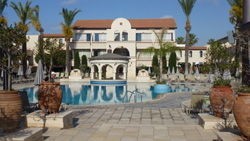
Climate Cyprus
Population of Cyprus
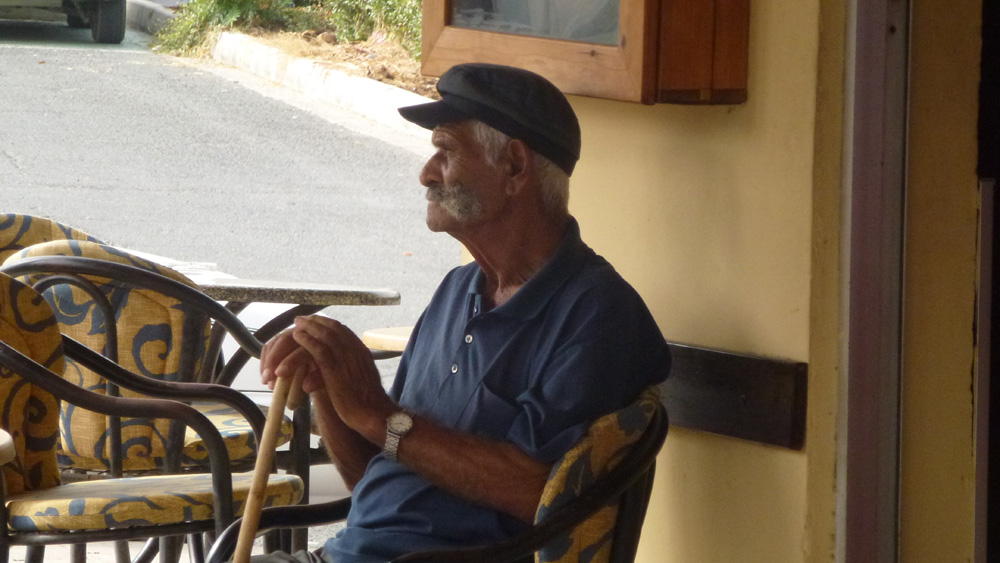 The population of Cyprus has been consisting of two ethnic groups for several centuries: Greeks Cypriots and Turkish Cypriots. After separating the island, the overwhelming majority of the Greeks-Cypriots live in the south, and the Turks are in the north. The total population is about 900 thousand people, of which the Greeks - 650.000, the Turks - 160 thousand. Also in Cyprus there are 17,000 Englishmen, from 20 to 50 thousand Russians, 4 thousand Armenians. After the 1974 war, about 180 thousand Greek Cypriots fled or were forcibly relocated to the south. About 42 thousand Turks moved to the north. And only in the village of District, both groups of the population lived with the United Nations administration.
The population of Cyprus has been consisting of two ethnic groups for several centuries: Greeks Cypriots and Turkish Cypriots. After separating the island, the overwhelming majority of the Greeks-Cypriots live in the south, and the Turks are in the north. The total population is about 900 thousand people, of which the Greeks - 650.000, the Turks - 160 thousand. Also in Cyprus there are 17,000 Englishmen, from 20 to 50 thousand Russians, 4 thousand Armenians. After the 1974 war, about 180 thousand Greek Cypriots fled or were forcibly relocated to the south. About 42 thousand Turks moved to the north. And only in the village of District, both groups of the population lived with the United Nations administration.
Religion Cyprus
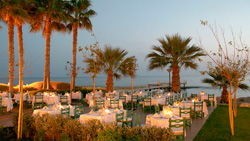 The majority of the Cyprus population are ethnic Greeks, professing Orthodox Christianity, and ethnic Turks professing Islam.
The majority of the Cyprus population are ethnic Greeks, professing Orthodox Christianity, and ethnic Turks professing Islam.
The Cypriot Orthodox Church has the status of a quasi-state institution and plays a prominent role in the socio-political life of the country; The Primate of the Cyprus Church is the archbishop of the new Justinian and. In addition to temples (more than 500), which are available in almost every village, the church has 11 monasteries in Cyprus, which owns the significant and most fertile lands of the island, having year-round artificial irrigation, and other major property.
The Armenian, Catholic, Maronite Church, as well as Judaism, and other religions are presented.
Political system of Cyprus
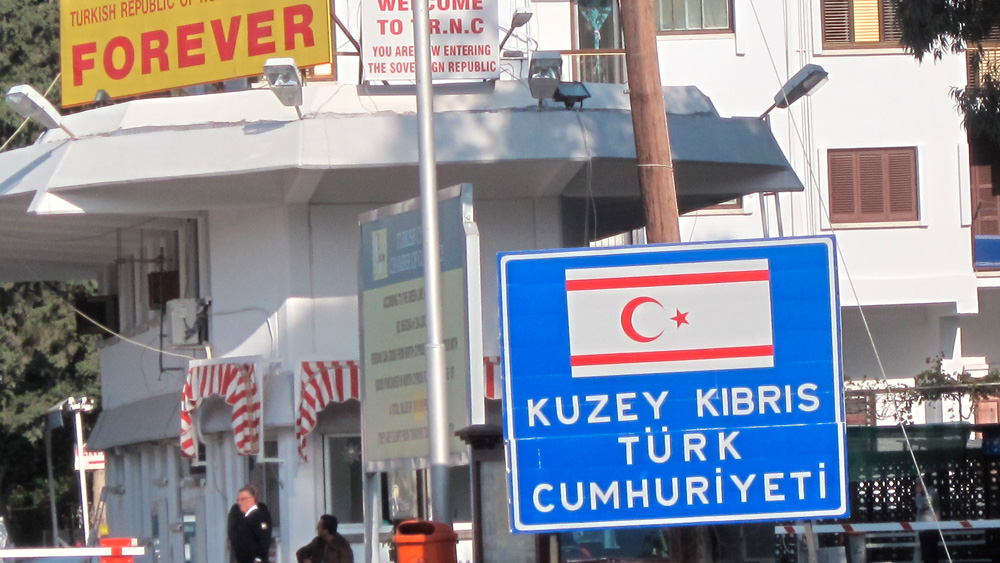 After independence, the Republic of Cyprus became one of the founders of the non-aligned movement, despite the fact that all three states-guarantors (Great Britain, Greece and Turkey) were members of NATO. In 2004, Cyprus came out of the Non-Aligned Movement, in order to join the European Union, but retained the special status of the observer in this organization. The 1960 Constitution represented the presidential republic with the division of the authorities to the executive, legislative and judicial, and quotas to protect the interests of ethnic Turks. The president and vice president were elected, respectively, by Greek and Turkish communities for a five-year term, and had veto on certain initiatives of the legislative and executive authorities.
After independence, the Republic of Cyprus became one of the founders of the non-aligned movement, despite the fact that all three states-guarantors (Great Britain, Greece and Turkey) were members of NATO. In 2004, Cyprus came out of the Non-Aligned Movement, in order to join the European Union, but retained the special status of the observer in this organization. The 1960 Constitution represented the presidential republic with the division of the authorities to the executive, legislative and judicial, and quotas to protect the interests of ethnic Turks. The president and vice president were elected, respectively, by Greek and Turkish communities for a five-year term, and had veto on certain initiatives of the legislative and executive authorities.
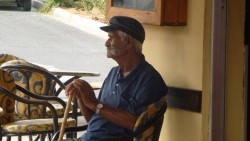 The Chamber of Representatives was elected on the basis of separate accounting of votes on both communities. Since 1964, the places of the Turkish community remained unoccupied. After the islands, the Turkish Republic of Northern Cyprus is headed by the President and Prime Minister responsible to the National Assembly. The TRCK authorities reject the sovereignty of the Republic of Cyprus over the entire territory of the island, and call it the "Greek authorities of South Cyprus". Accordingly, the Republic of Cyprus and other UN member states, with the exception of Turkey, do not recognize the TRG, and denote it as "territories occupied by Turkish troops".
The Chamber of Representatives was elected on the basis of separate accounting of votes on both communities. Since 1964, the places of the Turkish community remained unoccupied. After the islands, the Turkish Republic of Northern Cyprus is headed by the President and Prime Minister responsible to the National Assembly. The TRCK authorities reject the sovereignty of the Republic of Cyprus over the entire territory of the island, and call it the "Greek authorities of South Cyprus". Accordingly, the Republic of Cyprus and other UN member states, with the exception of Turkey, do not recognize the TRG, and denote it as "territories occupied by Turkish troops".
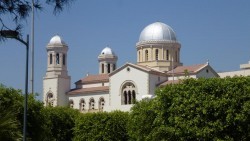 From May 1, 2004, the Republic of Cyprus enters the European Union. Legal, according to the jurisdiction of the Republic of Cyprus, the path of arrival on the island - through or or the seaports of Larnaca or Limassol. Legal according to the jurisdiction of the Turkish Republic of Northern Cyprus - through Turkey, and the ports of Northern Cyprus, sea or air. From January 1, 2008, the Republic of Cyprus enters the Eurozone, that is, its national currency - the Cyprus Pound - was replaced by euros.
From May 1, 2004, the Republic of Cyprus enters the European Union. Legal, according to the jurisdiction of the Republic of Cyprus, the path of arrival on the island - through or or the seaports of Larnaca or Limassol. Legal according to the jurisdiction of the Turkish Republic of Northern Cyprus - through Turkey, and the ports of Northern Cyprus, sea or air. From January 1, 2008, the Republic of Cyprus enters the Eurozone, that is, its national currency - the Cyprus Pound - was replaced by euros.
It can be useful
The Republic of Cyprus adheres to non-aligned policies, and is not included in NATO.
The Turkish sector is indicated on the maps of the Republic of Cyprus, as "the territory, inaccessible in connection with the Turkish occupation", the same on the northern map. The names of the cities of Northern Cyprus are given as of 1974, there are no road signs for these cities.
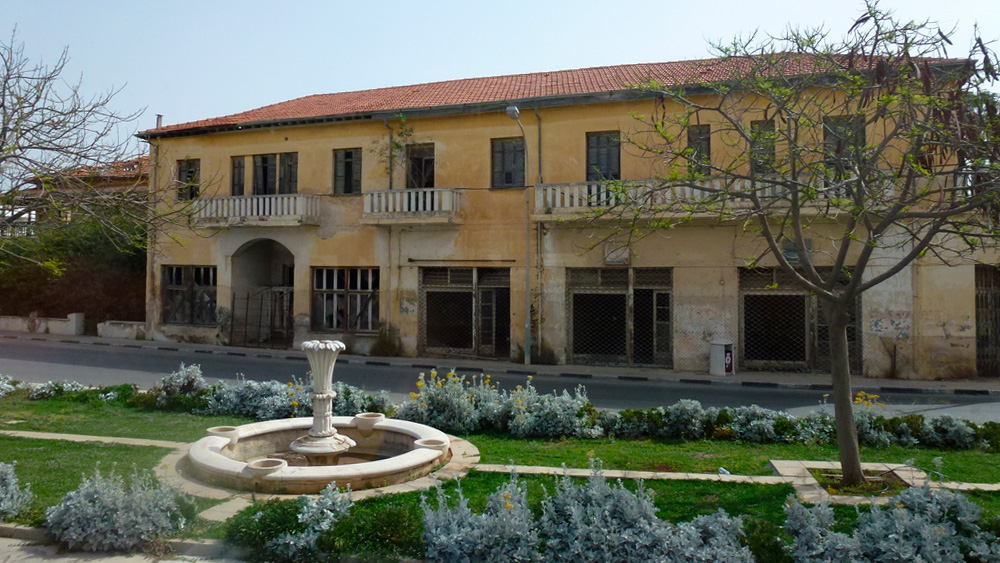 The property, located in Northern Cyprus, and belonging to the ethnic Greeks belonging to 1974 continues to be considered their property. Buying such real estate can be considered legal in the Turkish Republic of Northern Cyprus, but the authorities of the Greek sector may regard such a step as a stole par. Formally, under the sovereignty of the Republic of Cyprus, there are 98% of the territory of the island, minus the British military bases. De facto 38% of the territory occupies a partially recognized Turkish Republic of Northern Cyprus. Islands free, in the presence of a visa of the Republic of Cyprus, but is carried out only in certain.
The property, located in Northern Cyprus, and belonging to the ethnic Greeks belonging to 1974 continues to be considered their property. Buying such real estate can be considered legal in the Turkish Republic of Northern Cyprus, but the authorities of the Greek sector may regard such a step as a stole par. Formally, under the sovereignty of the Republic of Cyprus, there are 98% of the territory of the island, minus the British military bases. De facto 38% of the territory occupies a partially recognized Turkish Republic of Northern Cyprus. Islands free, in the presence of a visa of the Republic of Cyprus, but is carried out only in certain.
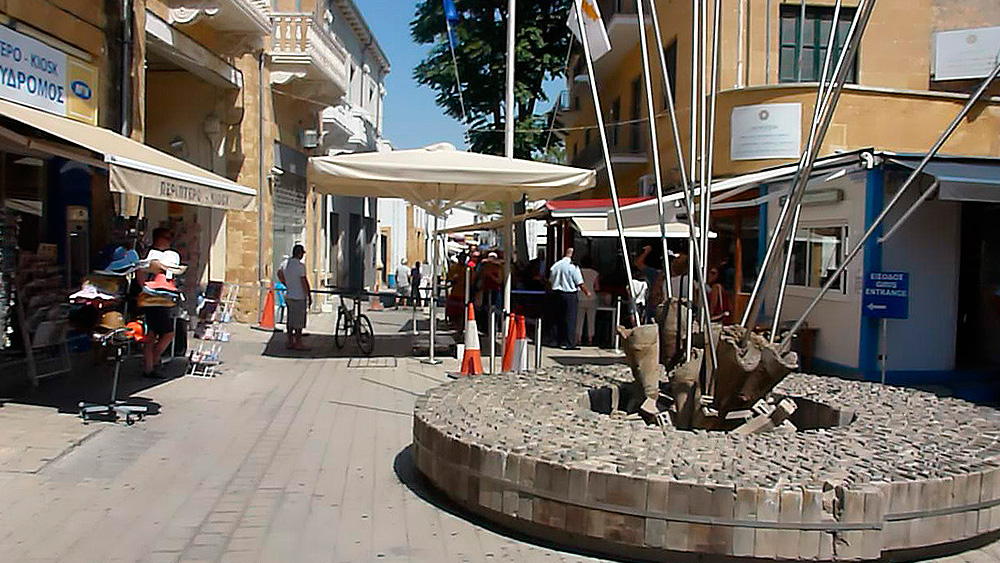 The visa of the partially recognized Turkish Republic of Northern Cyprus is issued at the entrance. Insurance may not apply to Turkish territory. When returning from the northern part of the island, customs inspection can be carried out. Since prices in the Turkish territory are significantly lower, the importation of goods from it is limited. The Republic of Cyprus may refuse to enter persons with a stamp on a visit to the Republic of Macedonia. This fact is associated with the dispute of this state with Greece about its name.
The visa of the partially recognized Turkish Republic of Northern Cyprus is issued at the entrance. Insurance may not apply to Turkish territory. When returning from the northern part of the island, customs inspection can be carried out. Since prices in the Turkish territory are significantly lower, the importation of goods from it is limited. The Republic of Cyprus may refuse to enter persons with a stamp on a visit to the Republic of Macedonia. This fact is associated with the dispute of this state with Greece about its name.
Diplomatic relations with the Soviet Union The Republic of Cyprus was established in August 1960. On April 7, 1992, the Republic of Cyprus recognized the Russian Federation by the successor of the USSR. Russian Embassies are in cities
Persons with a guest visa are forbidden to lead care activities. Work permit must be obtained before arriving in the Republic of Cyprus. In April 2004, referendums were held in both Cypriot republics in the Unified State. The proposed plan of the island's association was named by the author of the UN Secretary-General Kofi Annan. 65% of the TRCK citizens who participated in the referendum supported the Annan's plan, 75% of the Greeks-Cypriots plan rejected.
Economy Cyprus
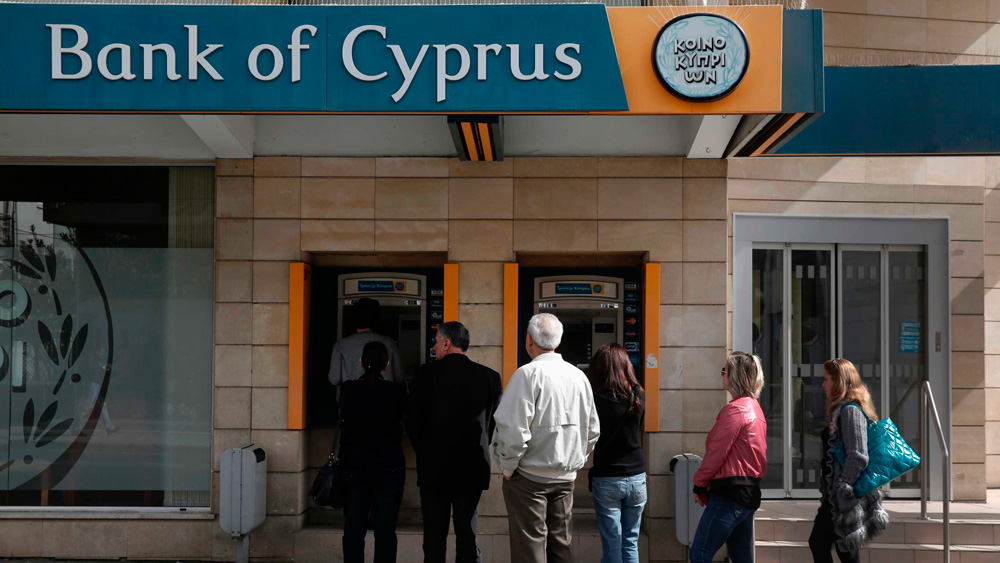 The section of the island on the Greek Sector (Republic of Cyprus) and Turkish (partially recognized Turkish Republic of Northern Cyprus) strongly affects the economy of Cyprus. The economy of the Greek sector experienced a speculative boom associated with the influx of offshore capital, between 1990 - 2008, but strongly depends on external risks. In the 1990s, the growth factors reflect the dependence of the island from fluctuations in the number of tourists, and changes in economic conditions in Western Europe.
The section of the island on the Greek Sector (Republic of Cyprus) and Turkish (partially recognized Turkish Republic of Northern Cyprus) strongly affects the economy of Cyprus. The economy of the Greek sector experienced a speculative boom associated with the influx of offshore capital, between 1990 - 2008, but strongly depends on external risks. In the 1990s, the growth factors reflect the dependence of the island from fluctuations in the number of tourists, and changes in economic conditions in Western Europe.
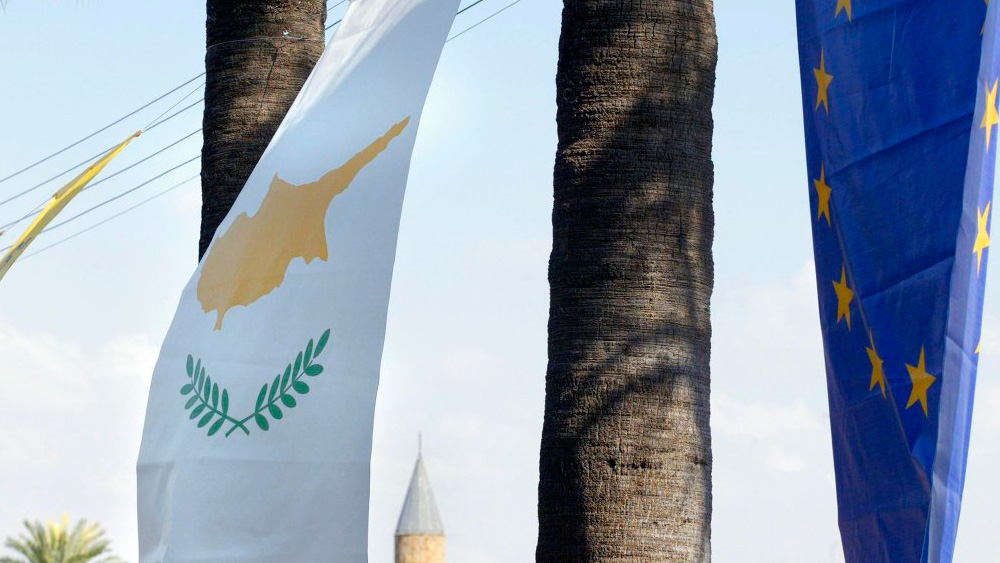 In January 2008, the Republic of Cyprus entered the Eurozone, and its monetary policy is dictated by the European Central Bank, which lowered the competitiveness of the republic in world markets and ultimately put the country for the edge of the financial and economic crisis in 2012 - 2013. As a result of crisis excitements, the prices for residential real estate decreased significantly. So in the municipal residential sector, the cost of housing ranges from 400 euros per square meter of construction. In the private sector, the value of the land for the weave varies on average from 1,700 to 50,000 euros.
In January 2008, the Republic of Cyprus entered the Eurozone, and its monetary policy is dictated by the European Central Bank, which lowered the competitiveness of the republic in world markets and ultimately put the country for the edge of the financial and economic crisis in 2012 - 2013. As a result of crisis excitements, the prices for residential real estate decreased significantly. So in the municipal residential sector, the cost of housing ranges from 400 euros per square meter of construction. In the private sector, the value of the land for the weave varies on average from 1,700 to 50,000 euros.
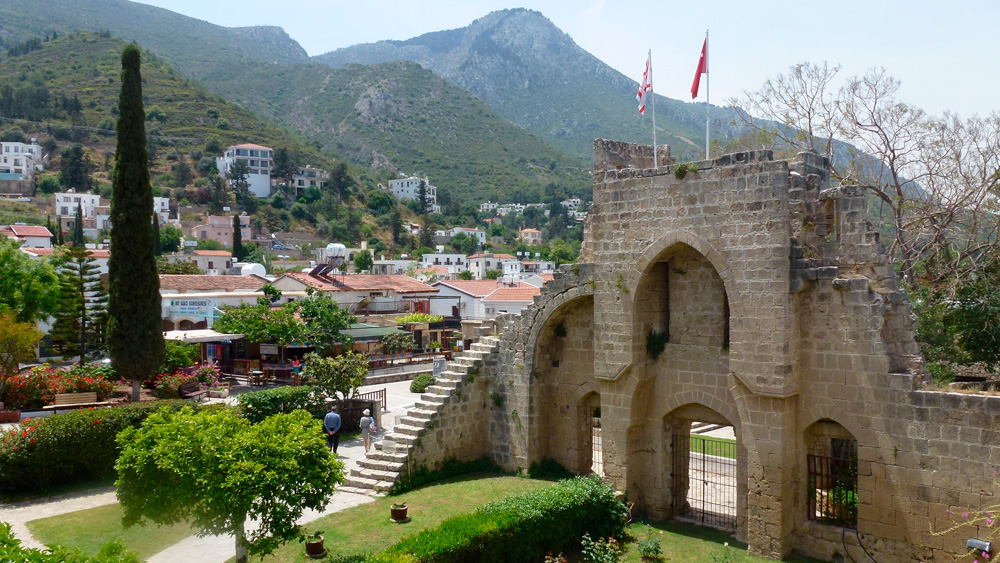 The Turkish sector represents one fifth of the population and one tenth GNP, compared with the Greek part of the island. Due to the fact that he is recognized only from Turkey member countries, Northern Cyprus is experiencing difficulties with international financing, and foreign firms usually avoid investment in it. Half of the workforce is occupied in agriculture, in state and military service. In the turnover of the northern part of the island is the Turkish Lira. Turkey also provides direct and indirect assistance to tourism, education, industry, etc. In the Turkish sector there is a problem with water, it is planned to build desalination stations.
The Turkish sector represents one fifth of the population and one tenth GNP, compared with the Greek part of the island. Due to the fact that he is recognized only from Turkey member countries, Northern Cyprus is experiencing difficulties with international financing, and foreign firms usually avoid investment in it. Half of the workforce is occupied in agriculture, in state and military service. In the turnover of the northern part of the island is the Turkish Lira. Turkey also provides direct and indirect assistance to tourism, education, industry, etc. In the Turkish sector there is a problem with water, it is planned to build desalination stations.
Transport in Cyprus
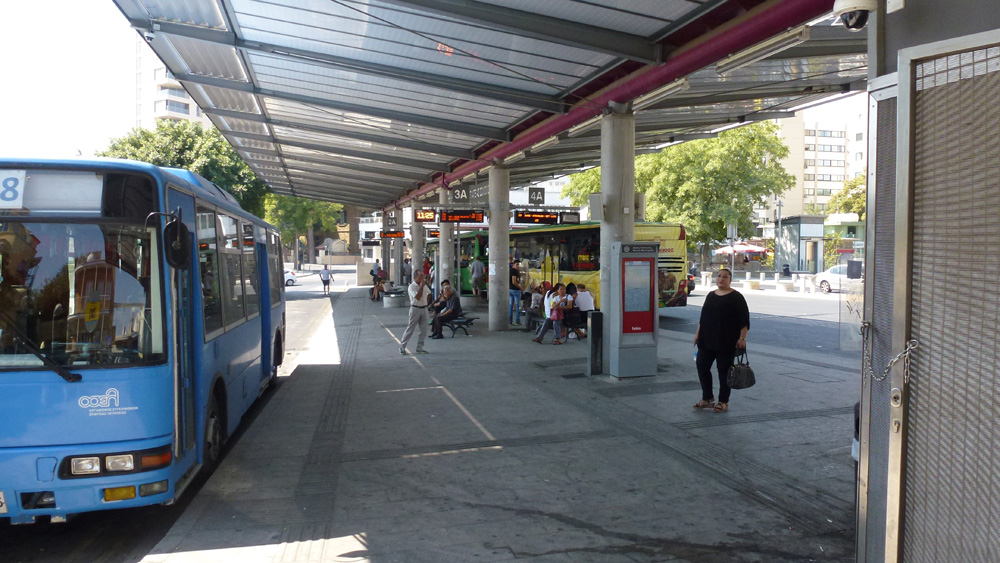 Cyprus highways are among the best in the European Union, and are divided into basic, auxiliary asphalt, seekers and motorways (Motorway). Movement - left-hand. The main 4 roads pass along the southern coast from Larnaca to Limassol and lead to Nicosia. The only type of public transport is buses. You can drive almost everywhere. Cyprus has three international airports, two are located on the Greek part of the island in Paphos (16 km from the city) and Larnaca (2 km from the city). There is also a full-fledged airport in Nicosia - Ercan (Ercan), all flights to Northern Cyprus pass through the territory of Turkey. The main airline serving the Greek part of the island is Siprus Airway. Larnaca Airport was opened in 1975, after the forced closure of the airport in Nicosia, and partially located on the territory previously used by Britain as a military base. Large sea ports, after closing, are and.
Cyprus highways are among the best in the European Union, and are divided into basic, auxiliary asphalt, seekers and motorways (Motorway). Movement - left-hand. The main 4 roads pass along the southern coast from Larnaca to Limassol and lead to Nicosia. The only type of public transport is buses. You can drive almost everywhere. Cyprus has three international airports, two are located on the Greek part of the island in Paphos (16 km from the city) and Larnaca (2 km from the city). There is also a full-fledged airport in Nicosia - Ercan (Ercan), all flights to Northern Cyprus pass through the territory of Turkey. The main airline serving the Greek part of the island is Siprus Airway. Larnaca Airport was opened in 1975, after the forced closure of the airport in Nicosia, and partially located on the territory previously used by Britain as a military base. Large sea ports, after closing, are and.
Tourism in Cyprus
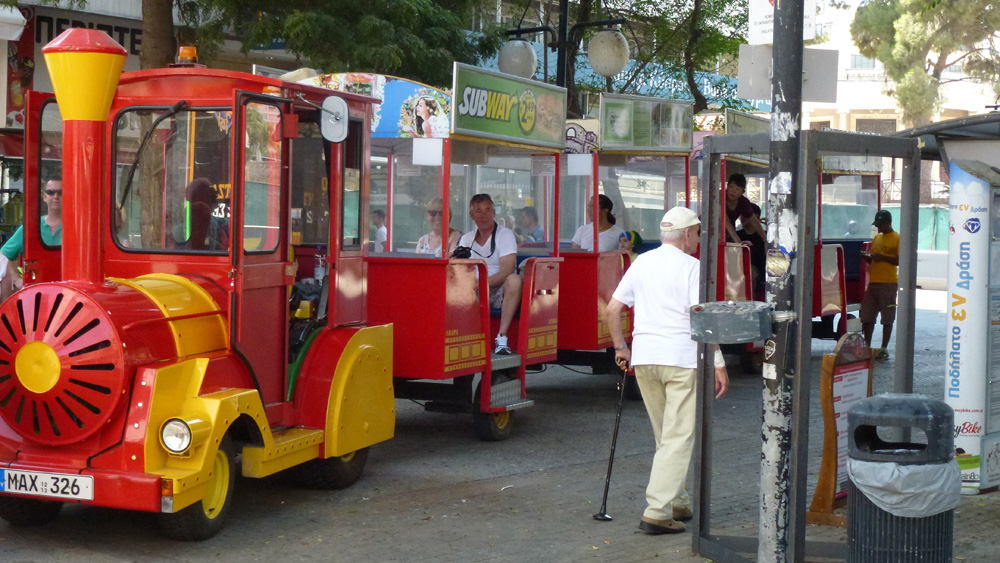 The tourism industry is one of the main items of national income. For her, the Cyprus Tourist Organization (CTO) Cyprus Tourist Organization (CTO) is responsible. In this sector, a significant part of the population is working, and tourism profits is the main source of foreign currency receipt in the republic's budget. Over the past 4 years, the number of tourists visiting Cyprus increased by 29%, and profit from tourism is 40%.
The tourism industry is one of the main items of national income. For her, the Cyprus Tourist Organization (CTO) Cyprus Tourist Organization (CTO) is responsible. In this sector, a significant part of the population is working, and tourism profits is the main source of foreign currency receipt in the republic's budget. Over the past 4 years, the number of tourists visiting Cyprus increased by 29%, and profit from tourism is 40%.
The largest resorts:
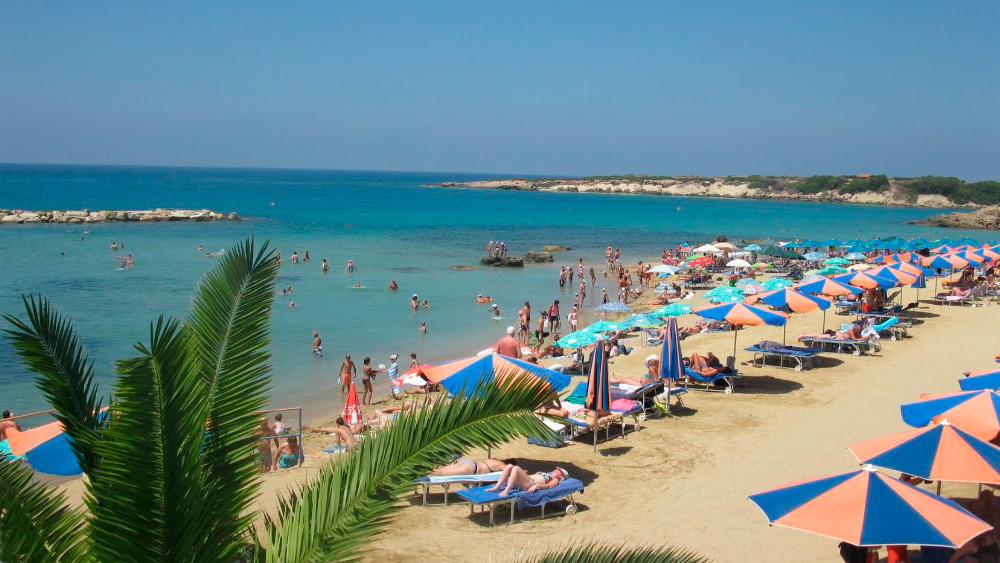 Many beaches of the Republic of Cyprus were awarded the Blue Flag of the European Union for environmental purity and infrastructure. Most of these beaches municipal, renting chaise lounges and umbrellas from the sun on them paid. The city of Nicosia (Levkosia) is the capital and the largest city of Cyprus. It is located in the center of the island and divided by the Green Line. City blocks north of it are controlled by the Turkish Republic of Northern Cyprus. The second largest city of Cyprus is the seaport of Limassol, based on Byzantine times. To the west of him is the British sovereign base of Akrotiri.
Many beaches of the Republic of Cyprus were awarded the Blue Flag of the European Union for environmental purity and infrastructure. Most of these beaches municipal, renting chaise lounges and umbrellas from the sun on them paid. The city of Nicosia (Levkosia) is the capital and the largest city of Cyprus. It is located in the center of the island and divided by the Green Line. City blocks north of it are controlled by the Turkish Republic of Northern Cyprus. The second largest city of Cyprus is the seaport of Limassol, based on Byzantine times. To the west of him is the British sovereign base of Akrotiri.
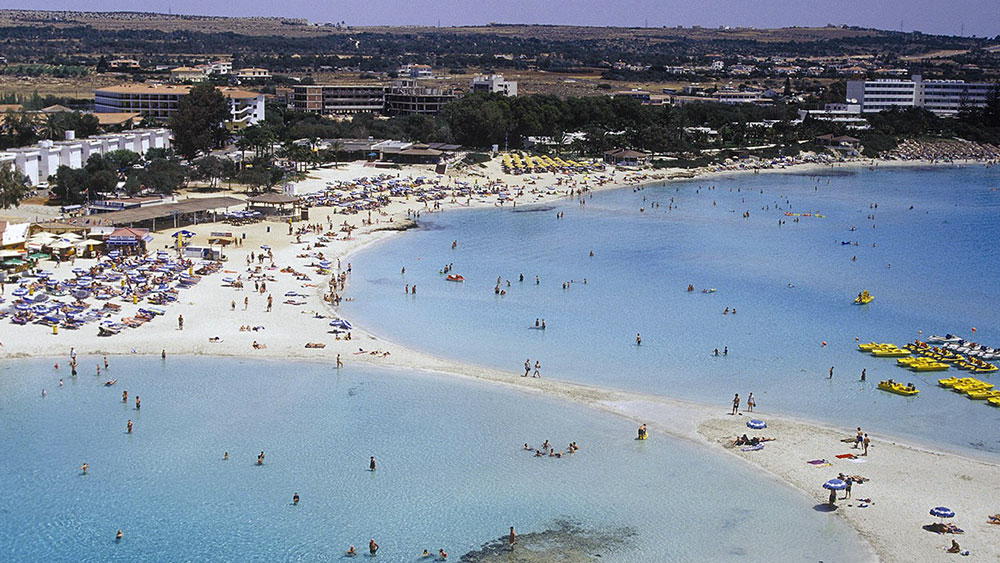 From the resorts of the Republic of Cyprus Ayia Napa is the center of the club life and is focused mainly on the youth. For a family holiday, it is mainly Paphos and Protaras. Ayia Napa is the only resort of the Republic of Cyprus, on which the surface layer of the beaches consists of white bridal sand. and from dark volcanic sand. Portraix beaches mixed, mainly of yellow sand.
From the resorts of the Republic of Cyprus Ayia Napa is the center of the club life and is focused mainly on the youth. For a family holiday, it is mainly Paphos and Protaras. Ayia Napa is the only resort of the Republic of Cyprus, on which the surface layer of the beaches consists of white bridal sand. and from dark volcanic sand. Portraix beaches mixed, mainly of yellow sand.
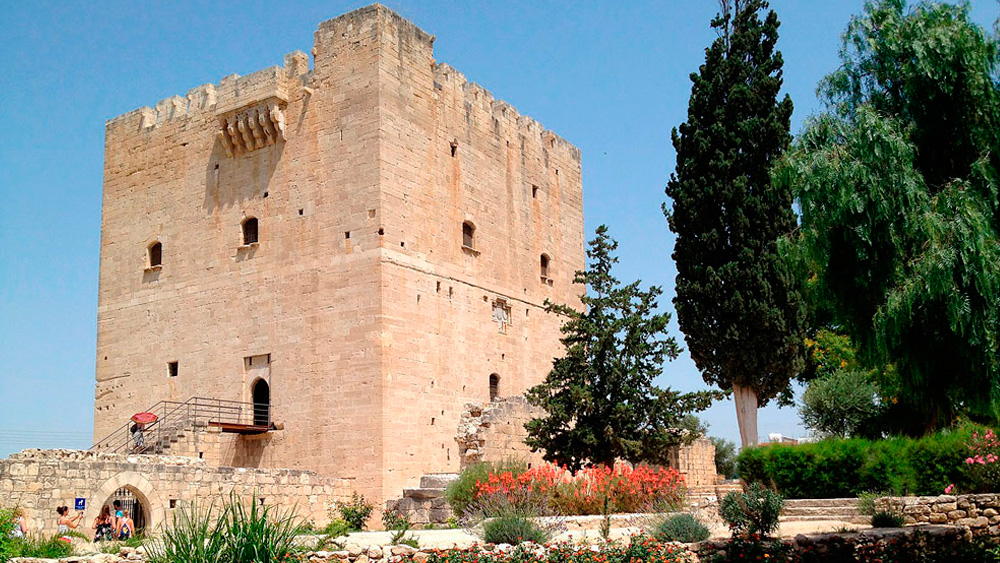 Included in the list of world cultural heritage of UNESCO, and also known in that there is an Aphrodite bay near him. According to the legend, in this place the goddess of love and beauty was born from the marine foam.
Included in the list of world cultural heritage of UNESCO, and also known in that there is an Aphrodite bay near him. According to the legend, in this place the goddess of love and beauty was born from the marine foam.
The British heritage refers to, in addition to the left-sided movement, the power supply standard - the trotter sockets (one of them - grounding, analogue of the sidewall contact of the EuroSiller), but voltage is not 230 V, as in the UK, and 240 V.
Many shops and banks on the island do not work on Wednesday after lunch and all day on Sunday, and on weekdays - only from 8:00 to 13:00 and from 15:00 to 17:30 in winter, from 16:00 to 19:00 in summer.
In relations between two communities, a certain tension is maintained. When communicating with it is not recommended to mention the Turkish occupation of the northern part of the island. A particularly painful topic is the "Ghost City" of Varosha. Among the ethnic Greeks in Cyprus, you can meet a certain number of immigrants from the former USSR (Pontic Greeks).
The procedure for entering the Republic of Cyprus
From January 1, 2004, a decree on introducing a visa regime for citizens of Russia has entered into force. According to the decision of the Consulate General of the Republic of Cyprus, the Russian citizens who have a current Schengen visa (categories with repeated entry), and who have already visited the Schengen Country on it, can travel to Cyprus without a national Cypriot visa and stay there during the term provided for by Schengen A visa according to the rules for obtaining a Schengen visa, made in their passport, and leave Cyprus no later than the expiration of the Schengen visa.
It is necessary to check the number of days to stay in the country of Schengen. Doves of stay in Cyprus are not deducted from the Schengen visa.
The owners of passports of the European Union member countries do not need a visa to enter Cyprus, but at the same time they undertake to have a valid passport or identity card with them, subject to the availability of photographs and instructions of citizenship.
To countries whose citizens are not required to obtain a visa to enter Cyprus for a period of no more than 90 days, provided that they are well-mounted visitors to the country include the following: Australia, Austria, Andorra, Argentina, Belgium, Bolivia, Brazil, Britain, Brunei, Vatican, Hungary, Venezuela, Guatemala, Germany, Holland, Honduras, Hong Kong, Greece, Denmark, Iceland, Spain, Italy, Canada, Costa Rica, Latvia, Lithuania, Liechtenstein, Luxembourg, Macau, Malaysia, Malta, Mexico, Monaco, Nicaragua, New Zealand, Norway, Special Administrative Areas of the People's Republic of China, Panama, Paraguay, Poland, Portugal, Romania, Salvador, San Marino, Singapore, Slovakia, Slovenia, United States, Uruguay, Finland, France, Croatia, Czech Republic, Chile, Switzerland, Sweden, Estonia, South Korea, Japan.
If citizens of the Russian Federation are not flying out of Russia, they need to issue a tourist visa to the passport; If the tourist has an open-acting Schengen visa, he can visit the territory of Cyprus on this visa.
Citizens of the Russian Federation are necessary for entry into the Republic of Cyprus.
_______________________________________________________
Best hotels in Cyprus
Hotels Protarasa
 Ayia Napa is a prestigious and very popular resort among tourists from around the world. Today, this picturesque corner of the Earth organically combines natural beauty with stormy night entertainment. Therefore, rest in Ayia Naia is more suitable for young people. The city has a huge number of bars, nightclubs, taverns, restaurants, shopping centers. Any entertainment establishment can boast a variety of Cyprus wines and delicious national cuisine.
Ayia Napa is a prestigious and very popular resort among tourists from around the world. Today, this picturesque corner of the Earth organically combines natural beauty with stormy night entertainment. Therefore, rest in Ayia Naia is more suitable for young people. The city has a huge number of bars, nightclubs, taverns, restaurants, shopping centers. Any entertainment establishment can boast a variety of Cyprus wines and delicious national cuisine.
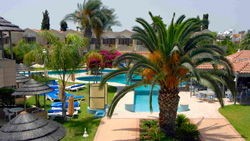 Larnaca - the third largest city of Cyprus and the main air tourist gates of the island. It is here that tourists from all over the world are most often attached. Of all the resort cities of Cyprus, rest in Larnaca is the easiest and economical. The city is very democratic and therefore will be well here all: family people, youth, elderly couples, business people, and lonely tourists too. Each here will find something in your taste.
Larnaca - the third largest city of Cyprus and the main air tourist gates of the island. It is here that tourists from all over the world are most often attached. Of all the resort cities of Cyprus, rest in Larnaca is the easiest and economical. The city is very democratic and therefore will be well here all: family people, youth, elderly couples, business people, and lonely tourists too. Each here will find something in your taste.
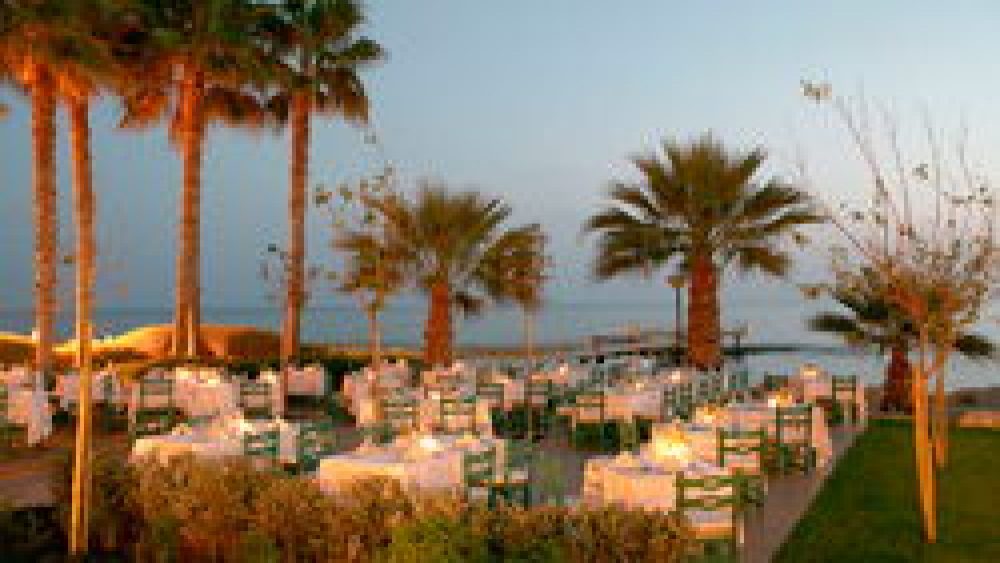 The city of Limassol is the second largest city in Cyprus. This is a modern and business resort center. In Limassol and its surroundings of the focus of industrial corporations of foreign companies, as well as the district team is the center of Cyprus Winemaking. Geographically, it is very attractive for tourists who want to visit different corners of the island. Larnaca, Paphos and Ayia Napa can be reached by bus in just 1.5 hours.
The city of Limassol is the second largest city in Cyprus. This is a modern and business resort center. In Limassol and its surroundings of the focus of industrial corporations of foreign companies, as well as the district team is the center of Cyprus Winemaking. Geographically, it is very attractive for tourists who want to visit different corners of the island. Larnaca, Paphos and Ayia Napa can be reached by bus in just 1.5 hours.
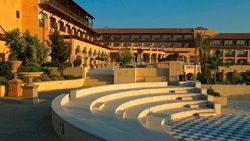 Paphos is the most elite resort of Cyprus and he spread on the west coast of the island. This is the classic old European resort city on one side, and with the other fashionable and modern. In general, the resort is focused on the rest of wealthy people. A lot of artists come to the rest in Paphos, who want high quality in all. And on the other hand, there will be hotels and entertainment for people of different ages and income.
Paphos is the most elite resort of Cyprus and he spread on the west coast of the island. This is the classic old European resort city on one side, and with the other fashionable and modern. In general, the resort is focused on the rest of wealthy people. A lot of artists come to the rest in Paphos, who want high quality in all. And on the other hand, there will be hotels and entertainment for people of different ages and income.


